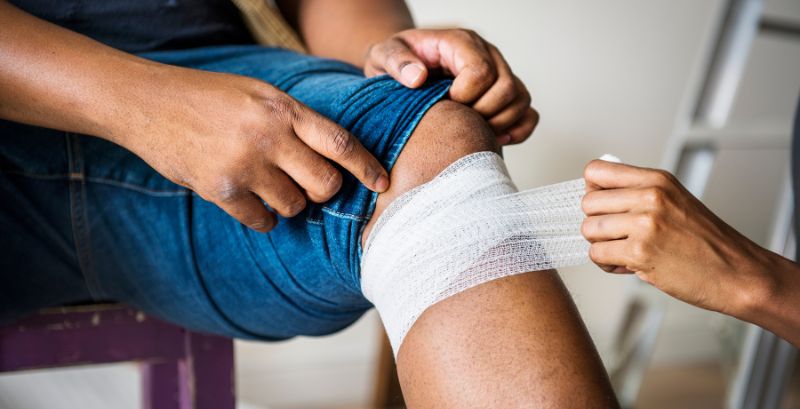Catastrophic injuries are life-altering events that have severe and lasting consequences for the victims and their families. These injuries can occur in various ways, often as a result of accidents or negligence.
Understanding the common causes of catastrophic injuries and the legal recourse available to victims is essential for those who find themselves in such unfortunate situations.
This article aims to shed light on the most frequent causes of catastrophic injuries and the legal avenues victims can pursue to seek justice and compensation.
Common Causes of Catastrophic Injuries
Motor Vehicle Accidents
Motor vehicle accidents, including car crashes, motorcycle accidents, and truck collisions, are one of the leading causes of catastrophic injuries. These accidents can result in devastating injuries such as traumatic brain injuries (TBI), spinal cord injuries (SCI), amputations, and severe burns. Factors contributing to these accidents often include speeding, impaired driving, distracted driving, and reckless behavior.
Slip and Fall Accidents
Slip and fall accidents can occur in various settings, including workplaces, public places, and private properties. These accidents can lead to catastrophic injuries such as traumatic brain injuries, fractures, and spinal cord injuries. In many cases, negligent property maintenance or failure to address hazards like slippery surfaces or uneven flooring can be the causes of these accidents.
Medical Malpractice
Medical malpractice cases can result in life-altering injuries due to the negligence of healthcare professionals. Catastrophic injuries may occur during surgery, childbirth, or through misdiagnosis, leading to severe complications. Victims can suffer from permanent disabilities, chronic pain, or even loss of life.
Workplace Accidents
Workplace accidents, particularly in industries like construction and manufacturing, can lead to catastrophic injuries. Falls from heights, heavy machinery accidents, chemical exposures, and electrical accidents are among the common causes. Employers are typically responsible for providing a safe working environment, and violations of safety regulations can result in severe injuries and legal actions.
Sports and Recreational Activities
Participating in sports and recreational activities can sometimes lead to catastrophic injuries. High-impact sports like football, rugby, and extreme sports carry a higher risk of traumatic brain injuries and spinal cord injuries. While these activities often involve inherent risks, negligence or improper safety measures can exacerbate the consequences.
Product Liability
Defective products, including faulty machinery, pharmaceuticals, and consumer goods, can cause catastrophic injuries. Product liability cases involve manufacturers, distributors, and retailers who may be held accountable for injuries caused by their products. Victims can pursue legal recourse to seek compensation for their injuries.
Legal Recourse for Catastrophic Injury Victims
Personal Injury Lawsuits
Personal injury lawsuits are a common legal recourse for catastrophic injury victims seeking compensation. To file a personal injury lawsuit, victims must establish that another party’s negligence or wrongful actions caused their injuries. Key elements of personal injury claims include:
- Duty of Care: Demonstrating that the defendant owed the victim a duty of care, such as a doctor-patient relationship or a duty to maintain safe premises.
- Breach of Duty: Proving that the defendant breached their duty of care through negligence, recklessness, or intentional misconduct.
- Causation: Establishing a direct link between the defendant’s actions or negligence and the catastrophic injury suffered by the victim.
- Damages: Demonstrating the extent of the damages suffered by the victim, including medical expenses, lost wages, and pain and suffering.
Workers’ Compensation Claims
Victims of catastrophic injuries sustained in workplace accidents may be eligible for workers’ compensation benefits. Workers’ compensation is a system that provides medical coverage and financial support to injured workers, regardless of fault.
These benefits can help cover medical bills, rehabilitation, and a portion of lost wages. However, workers’ compensation typically limits the amount of compensation available, and victims who receive it may not be able to sue their employers for additional damages.
Medical Malpractice Claims
In cases of catastrophic injuries resulting from medical malpractice, victims can pursue legal action against healthcare providers, including doctors, nurses, and hospitals.
Medical malpractice claims require demonstrating that the healthcare professional breached the standard of care, causing harm to the patient. Victims can seek compensation for medical expenses, lost income, pain and suffering, and the costs of future care and rehabilitation.
Product Liability Lawsuits
When catastrophic injuries are caused by defective products, product liability lawsuits can be filed against the responsible parties, such as manufacturers, distributors, or retailers.
These lawsuits can hold product makers accountable for injuries resulting from design flaws, manufacturing defects, or inadequate warnings. Victims can seek compensation for medical bills, lost income, and pain and suffering.
Premises Liability Claims
In slip and fall cases or accidents on someone else’s property, victims can file premises liability claims against property owners or occupiers. To succeed in these claims, victims must prove that the property owner was negligent in maintaining a safe environment, leading to catastrophic injury. Compensation may cover medical expenses, lost wages, and pain and suffering.
Insurance Claims
Motor vehicle accidents often involve insurance claims. Victims can file claims with their own insurance company or the at-fault party’s insurer to seek compensation for damages. Insurance claims can help cover medical expenses, property damage, and sometimes even pain and suffering. However, insurance companies may try to minimize payouts, making it crucial for victims to seek legal guidance.
Hire a Catastrophic Injury Lawyer
Catastrophic injuries can have a profound and lasting impact on the lives of victims and their families. Understanding the common causes of these injuries and the legal recourse available is essential for those seeking justice and compensation.
Whether it’s through personal injury lawsuits, workers’ compensation claims, medical malpractice actions, product liability lawsuits, premises liability claims, or insurance claims, victims of catastrophic injuries have legal avenues to pursue.
Consulting with an experienced catastrophic injury lawyer is often the first step toward obtaining the compensation needed to rebuild lives and secure a more stable future after such devastating events.
At Swartz & Swartz, we understand the challenges and hardships that catastrophic injury victims face. Our experienced team of attorneys is committed to helping victims seek justice and obtain the compensation they deserve.
If you or a loved one has suffered a catastrophic injury due to someone else’s negligence or wrongdoing, contact us today for a free consultation. We will evaluate your case, explain your legal options, and work tirelessly to help you secure the financial support necessary for your recovery.
Keep Reading
Want more? Here are some other blog posts you might be interested in.






